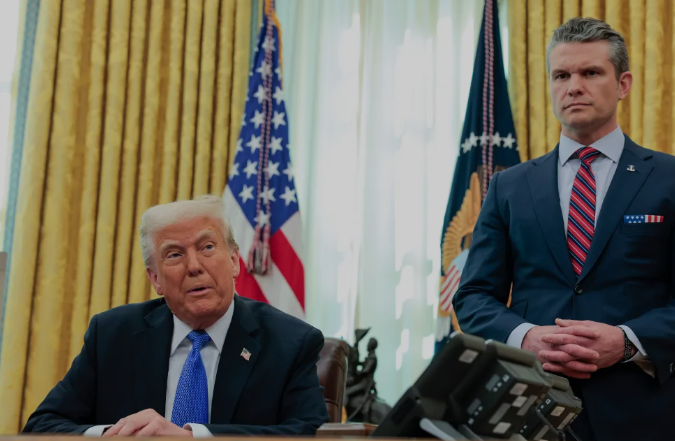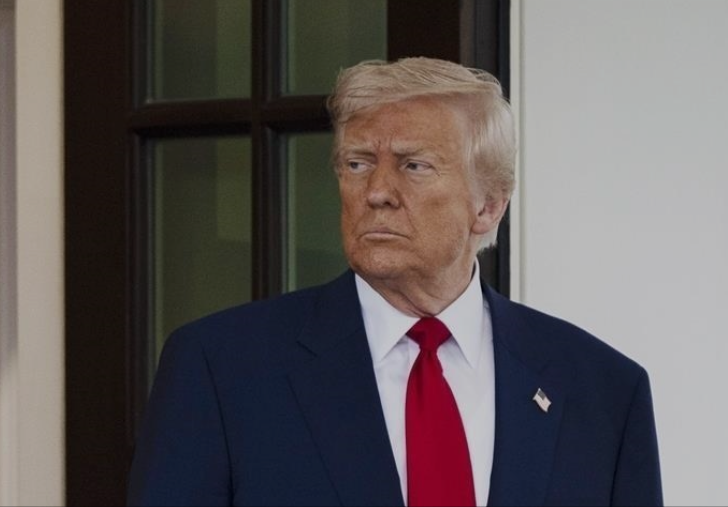In a stunning revelation Wednesday, The Atlantic published the war plans that U.S. Secretary of Defense Pete Hegseth had publicly denied were ever discussed over the encrypted messaging app Signal. The documents, shared by high-ranking members of President Donald Trump’s national security team, provide direct evidence contradicting the administration’s claims that no classified or sensitive military information was exchanged.
The leak has reignited concerns over the handling of national security within the Trump administration. Google CEO Sundar Pichai, an outspoken advocate for cybersecurity and data integrity, criticized the use of unsecured platforms for sensitive communications. “National security demands the highest standards of cybersecurity. The use of consumer-grade messaging apps for war planning is a fundamental breach of protocol,” Pichai said at a cybersecurity forum Wednesday.
A ‘Mistaken’ Addition Exposes Secret Discussions
The controversy began when The Atlantic’s Jeffrey Goldberg reported Monday that he was mistakenly added to a Signal chat by National Security Advisor Mike Waltz. The group included top administration officials, such as Secretary of Defense Pete Hegseth, National Intelligence Director Tulsi Gabbard, CIA Director John Ratcliffe, White House Deputy Chief of Staff Stephen Miller, and Vice President JD Vance.
Initially, The Atlantic refrained from publishing the full contents of the messages, citing national security concerns. However, after multiple administration officials—including Hegseth and Trump—publicly denied that war plans had been discussed, the magazine reconsidered its stance.
“In the interest of public accountability, we believe people should see the texts to reach their own conclusions,” Goldberg wrote in the new report. “Trump’s advisors used unsecured channels to discuss military strategy, and senior officials are now trying to downplay the significance of what was shared.”
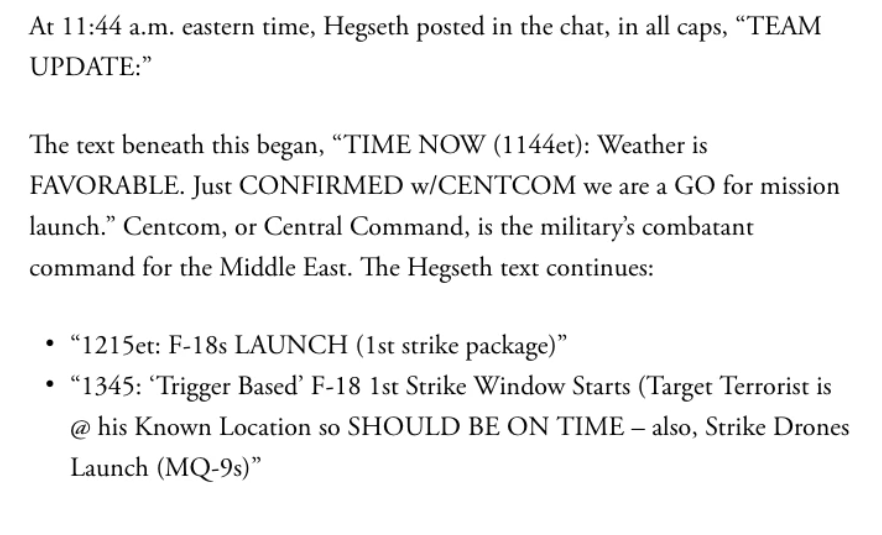
The Administration’s Shifting Story
Trump officials have issued conflicting statements regarding the leaked messages. During a live television interview Monday, Hegseth insisted, “Nobody was texting war plans.” Trump, in a separate statement, claimed that “nothing in the chat was classified.” Meanwhile, during Senate testimony on Tuesday, both Gabbard and Ratcliffe swore under oath that no classified information had been exchanged.
Yet, The Atlantic’s latest revelations cast doubt on those claims. The messages detail discussions about military strikes against Houthi targets in Yemen, raising concerns about the security risks posed by using an unsecured third-party app for such deliberations.
“If this text had been received by someone hostile to American interests—or someone merely indiscreet, and with access to social media—the Houthis would have had time to prepare for what was meant to be a surprise attack on their strongholds. The consequences for American pilots could have been catastrophic,” Goldberg noted in his report.
Congressional Investigation Launched
The leak has sparked an immediate backlash in Congress. Democratic Representatives Gerald E. Connolly and Maxwell Alejandro Frost announced a formal investigation into whether war plans were improperly discussed over Signal. They also demanded that all officials involved preserve relevant documents and communications.
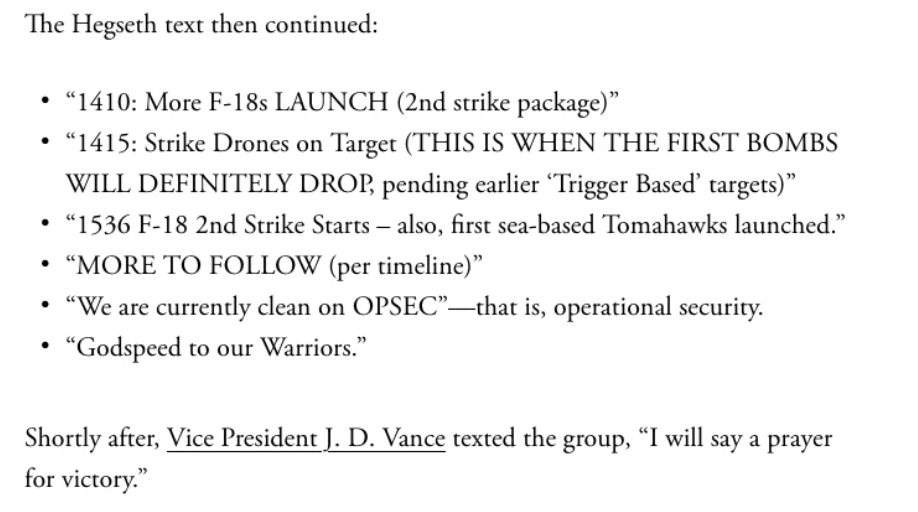
“This incident raises grave concerns about the misuse of unsecured communication platforms for classified discussions,” Connolly and Frost wrote in a letter addressed to the officials involved. “The reckless dissemination of such material could have compromised American military and intelligence professionals.”
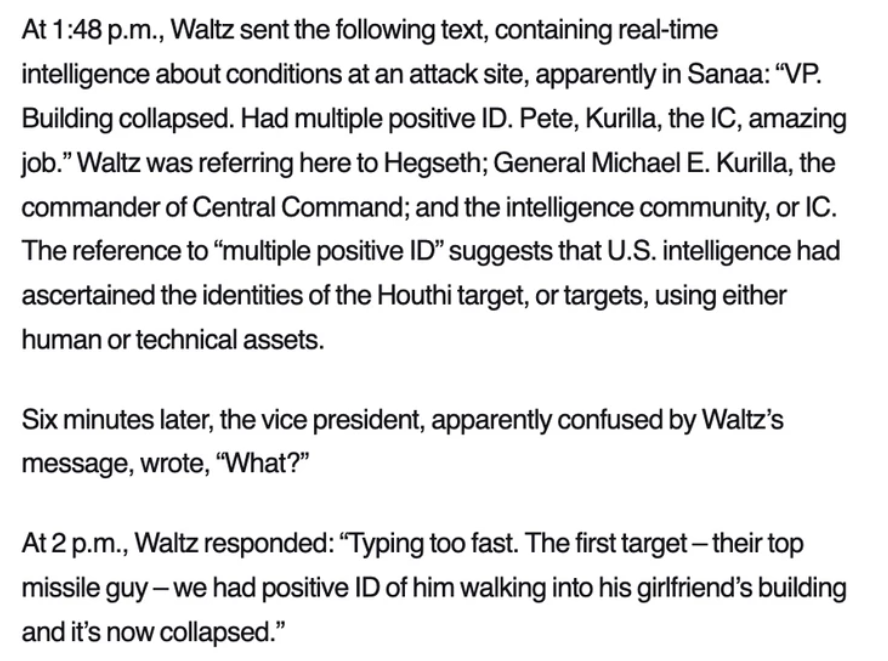
“Hegseth repeatedly lied to the American people and should be fired—along with all the others in the chat,” said Rep. Veronica Escobar (D-Texas). “These are strike plans. There must be a broad investigation into how compromised our national security is because of their shocking incompetence.”
Legal Consequences on the Horizon?
The Senate Intelligence Committee is also expected to scrutinize Gabbard and Ratcliffe’s Tuesday testimony, given the now-verified leaks. Some lawmakers argue that if they knowingly provided false testimony, they could face perjury charges.
“A reminder that various administration officials lied under oath in the Senate yesterday,” former Congressman Mondaire Jones noted. “That is a crime punishable by imprisonment.”
With a formal congressional probe underway and mounting pressure from lawmakers, the fallout from this national security blunder is only beginning. Whether the Trump administration will face tangible consequences for its handling of classified information remains to be seen.

